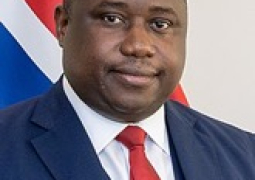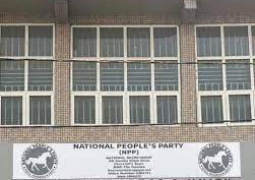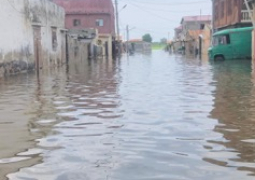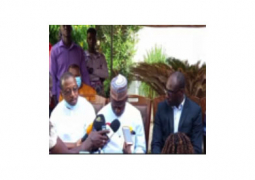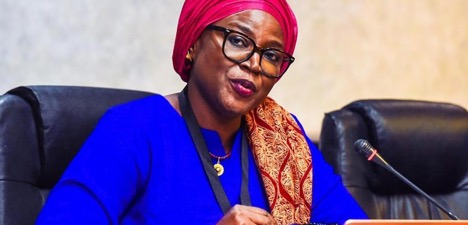
On Tuesday, the Committee received a presentation from the Vice-Chair and Special Rapporteur on the Rights of Women in Africa of the African Commission on Human and People's Rights (ACHPR), Hon. Commissioner Janet Ramatoulie Sallah-Njie, who delivered a compelling statement urging member states to work together to address their gender-related challenges.
Despite many African countries experiencing similar issues, such as FGM, child marriage, femicide, gender equality, and gender-based violence, the severity and contexts of these problems vary. “Child marriage, for example, occurs throughout the continent, but there are hotspot countries like Niger that need urgent attention. We need to work together to solve these issues,” she said.
“South Africa has a high rate of femicide, as reflected in data and statistics. The prevalence is unacceptable, with Kenya also facing alarming rates—47 women are killed each week,” Sallah-Njie highlighted. She noted that the Pan-African Parliament is no stranger to collaboration, citing the FGM bill as an example where the gender committee joined forces with the health and human rights committee.
“Sometimes, you need to collaborate to have a consolidated and comprehensive approach. I am speaking to one committee, but I hope this committee will bring other relevant platforms on board.
“We can play a crucial role in supporting parliamentarians in their efforts for women’s rights. To conquer the challenges faced by women in hotspot countries in Africa, we must work together,” she said. The rapporteur proposed that the parliament utilise its experience in developing model laws to intensify efforts, particularly in the legal protection of women and girls.
“We can develop model laws to criminalize practices like FGM, medicalization, child marriage, femicide, and gender-based violence. These model laws can provide a consistent framework to guide remedies. “We don’t have to reinvent the wheel. We can analyze what exists, address specific aspects, and combine them to combat violations across the continent,” she added.
Commissioner Sallah-Njie reminded committee members to monitor member states that might regress from established regulations. “We can issue joint press statements to call out wrongdoing, raise awareness, condemn harmful practices, and amplify our collective voices to urge our governments to act immediately.
“Particularly, we need to condemn threats to freedoms. Sometimes the law exists, but there is a threat of rollback,” she emphasised. She urged parliamentarians to engage beyond the PAP platform, “Interact with other parliamentarians. We can organize outreach programs, especially for those in hotspot countries, hold dialogues, and advocate for legislative reform.”
Sallah-Njie stressed the importance of creating a platform for exchange and understanding issues before calling for national legislation. “We can establish collaborative partnerships, formal agreements, memorandums of understanding, and joint initiatives to signal a shared commitment to addressing women’s rights on the continent.
Despite budget cuts, the rapporteur encouraged parliamentarians to join forces with limited resources. “Let’s organize impactful events to raise awareness. We can target specific development goals, create concept notes, and provide comprehensive information to prevent confusion among member states.
“We have excellent instruments, policies, and soft laws, but national lawyers are often unaware of them and do not use them in litigation,” she lamented.
Some MPs raised concerns about cultural implications and a lack of political will but expressed hope that the model laws will end violations. “We need to mobilize the law. We cannot just draft laws and hope they will work. We need to work with legal teams in our member states to ensure that the model law is tested in courts and other forums,” they said.
The meeting provided a crucial platform for key continental stakeholders to express their views and identify issues to bring before parliament. Members shared valuable insights, supporting the protection, preservation, and promotion of women’s rights, along with those of other vulnerable communities such as youth and children. Besides, there was consensus on the importance of consulting women, youth, and victims to ensure adequate representation of their views and a unified approach to addressing future challenges to women's rights.
Read Other Articles In Headlines
